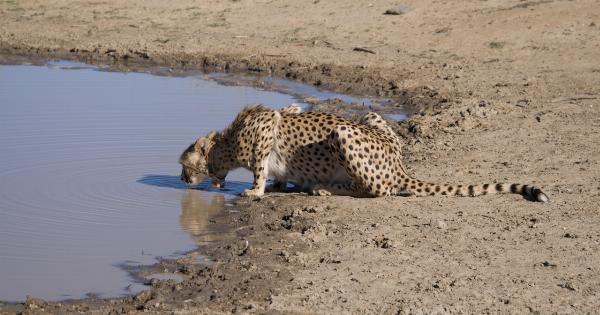Animal abuse is a deeply disturbing and concerning issue that affects countless innocent creatures around the world.
From neglect to physical violence and cruelty, the harm inflicted upon animals can have severe consequences for their physical and emotional well-being. In order to address and prevent such abuse, it is crucial to examine the psychology behind those who commit these acts.
The Link Between Animal Abuse and Psychopathy
Research has shown a significant correlation between animal abuse and psychopathic tendencies. Psychopathy is a personality disorder characterized by a lack of empathy, remorse, and a propensity for violence.
Individuals with psychopathic traits often view animals as objects or targets for their aggression, deriving pleasure from their suffering. Animal cruelty can serve as an outlet for their sadistic urges and a way to exert control.
Childhood Trauma and Learned Behavior
Another key aspect of the psychology of animal abusers is the connection with childhood trauma and learned behavior. In many cases, individuals who grow up in environments where violence and abuse are present may internalize these behaviors.
Witnessing or experiencing animal abuse during childhood can desensitize individuals to the suffering of animals, leading to a cycle of cruelty that perpetuates into adulthood.
Mental Health Issues and Animal Abuse
Several mental health conditions are also linked to animal abuse. Some individuals who suffer from conditions such as conduct disorder, antisocial personality disorder, or sadism may find pleasure in inflicting harm on animals.
In these cases, animal abuse serves as a symptom or manifestation of their underlying psychological issues.
Power and Control
For certain individuals, the act of animal abuse provides a sense of power and control over a living being that is vulnerable and defenseless. The ability to dominate and exert authority can be gratifying, reinforcing their abusive behavior.
This power dynamic allows them to feel superior and invincible, further fueling their actions.
Emotional Detachment and Objectification
Animal abusers often exhibit emotional detachment and see animals as objects rather than living beings. They may lack the ability to form empathetic connections with animals, disregarding their pain and suffering.
This emotional detachment allows them to carry out acts of abuse without remorse or guilt.
Escalation of Violence
In some cases, animal abuse is a precursor to violence against humans. Several studies have found a disturbing trend in which individuals who abuse animals are more likely to engage in domestic violence or other forms of harm towards humans.
This escalation of violence underscores the need to address and prevent animal abuse before it spreads to other vulnerable victims.
Thrill-Seeking and Entertainment
Shockingly, some individuals may engage in animal abuse for entertainment purposes or as a form of thrill-seeking.
The act of inflicting misery upon animals may illicit excitement or amusement for these individuals, highlighting a deeply troubling aspect of their psychology.
Path to Rehabilitation
Understanding the psychology of animal abusers is essential in developing effective intervention strategies and providing rehabilitation opportunities.
Therapy and counseling can play a crucial role in addressing the underlying issues that contribute to animal abuse. By targeting the root causes, individuals may develop empathy, learn alternative forms of coping, and break the cycle of violence.
Education and Empathy
Prevention is key to combatting animal abuse, and education plays a vital role in promoting empathy and respect towards animals.
Teaching the value of compassion and responsible animal stewardship can help reshape attitudes and behaviors towards our fellow creatures.
Legal Consequences
Establishing strict legal consequences for animal abuse is crucial to deter potential abusers and protect the welfare of animals. Enforcing animal cruelty laws helps create a society that values and safeguards the rights and well-being of animals.
Conclusion
The psychology of animal abusers is complex and multifaceted, involving a range of factors such as psychopathic traits, childhood trauma, mental health issues, power dynamics, emotional detachment, and a propensity for violence.
By delving into the psychology behind these individuals, society can work towards preventing and addressing animal abuse more effectively.































